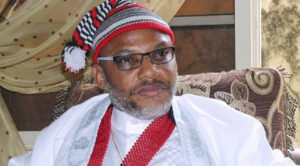
Fresh loans may push Nigeria’s debt to N182 trillion
Despite the Bola Ahmed Tinubu administration’s claims that the removal of fuel subsidy has saved Nigeria an estimated $7.5 billion yearly, the Federal Government is now seeking approval from the National Assembly to borrow an additional $24 billion — a move that will push the nation’s total debt stock to a staggering N182 trillion, up from the current N144 trillion.
The presidency, through Tinubu’s media adviser, Sunday Dare, while tracking the achievements of the current administration had said $7.5 billion is saved yearly after fuel subsidy removal.
Data from the Debt Management Office (DMO) reveals that Nigeria’s debt surged by 48.6 per cent in 2024, jumping from N97.3 trillion in 2023 to N144.6 trillion.
If the new borrowing request of roughly N38 trillion ($24.06 billion) is approved, Nigeria’s debt will rise to N182 trillion. Given the country’s estimated population of 227 million people, this means every Nigerian would, on paper, owe about N801,762, a figure that raises serious questions about sustainability and long-term repayment capacity.
Yesterday, Tinubu formally requested the House of Representatives to approve $21.5 billion and €2.2 billion in new external loans under the 2025–2026 borrowing plan. This package also includes ¥15 billion (Japanese Yen) and €65 million in grants, targeting projects in infrastructure, agriculture, health, education, water, security, employment, and financial reforms. Together, the loan stands at about $24 billion or N38 trillion.
According to Tinubu, these funds will be sourced on concessional or semi-concessional terms from multilateral and bilateral partners such as the World Bank, African Development Bank, Islamic Development Bank, China Exim Bank, and the French Development Agency.
In a separate move, the President is seeking approval to raise up to $2 billion from Nigeria’s domestic debt market to strengthen foreign exchange reserves, alongside a N757.98 billion bond to clear outstanding pension liabilities under the Contributory Pension Scheme, which dates to 2004.
While the government argues that external borrowing is necessary to close Nigeria’s widening infrastructure gap, critics point out that the country is haemorrhaging money elsewhere, particularly in the oil sector.
In January 2025, Nigeria produced just 1.5 million barrels per day (bpd), missing its 2 million bpd target by 500,000 bpd, which translated into a monthly loss of 15.5 million barrels or $1.2 billion in revenue. February was worse, with production down to 1.4 million bpd, meaning a shortfall of 16.8 million barrels, or another $1.2 billion in lost income (at an average price of $75 per barrel). March production rose slightly to 1.6 million bpd but was still 400,000 bpd short, costing Nigeria $892.8 million, while April’s 1.486 million bpd output left a gap of 420,000 bpd, amounting to a $856 million loss.
Since assuming office, despite measures promised to shore up revenue, President Tinubu has continued to secure loans aggressively. Since June 2023, his administration has borrowed $500 million for a women’s development programme, $800 million to cushion fuel price hikes after subsidy removal, $700 million for adolescent girls’ learning, $750 million for renewable energy, $1.5 billion for economic stabilisation, and $1.08 billion in World Bank loans approved this March.
Looking ahead, the World Bank plans to lend another $2.2 billion to Nigeria in 2025 across six projects, including $500 million for community action, $552 million for basic education, $800 million for nutrition, $300 million each for internally displaced persons and health security, and $500 million for digital infrastructure — bringing the recent borrowing tally to about $7.53 billion.
While President Tinubu maintains that these borrowings are crucial for stimulating growth, creating jobs, enhancing food security, and boosting foreign exchange earnings, economists and analysts warn that Nigeria’s rising debt levels are pushing the country toward a fiscal cliff.
Already, debt servicing is consuming a significant share of government revenue, leaving little room for investment in critical social services like healthcare, education, and security.
Furthermore, the government’s inability to ramp up oil production, its main revenue earner raises red flags amidst huge crude back loans, including a $3.3 billion loaned under Tinubu from Afrieximbank. With low oil prices and production, the country’s capacity to repay these mounting debts remained a mirage.
With production consistently falling short of budget targets and costing billions in lost earnings, many are questioning whether the government’s borrowing spree is merely postponing a deeper financial crisis.
The President of the Nigeria Economic Society, Professor Adeola Adenikinju raised serious concerns over Nigeria’s rapidly growing debt burden, warning that the country’s debt stock has surged by nearly 30 per cent in just two years.
Speaking in an Interview with The Guardian, Prof. Adenikinju noted that Nigeria’s current debt stands at approximately $90 billion, with more than ₦44 trillion — roughly $30 billion — already converted into current value.
He cautioned that the government’s decision to add a further $21.5 billion to the debt portfolio is a “huge leap” that demands clear explanations and proper justification.
“This is why the reasons for incurring this debt must be transparently provided. The National Assembly should have done this on behalf of Nigerians but given that many people lack confidence in the legislature, it becomes even more important for the Nigerian public and the media to engage the government,” Adenikinju said.
Adenikinju stressed that Nigerians deserve to know how the new borrowings will contribute to GDP growth over the next five to ten years, as well as their impact on poverty alleviation, job creation, and other key development indicators.
“These loans will ultimately be paid by both current and future generations. We must ensure that the social and economic benefits outweigh the costs,” he warned.
According to him, debt itself is not inherently bad, but it depends on what the borrowed money is used for and whether it will generate future streams of income and multiplier effects for the economy.
Meanwhile, energy lawyer Madaki Ameh has issued a further critique, accusing the government of reckless borrowing practices. “This government clearly has a penchant for unrestrained borrowing,” Ameh said.
To him, with the ‘rubber-stamp’ legislature in place, nothing appears to be stopping them from borrowing the country into bankruptcy. Ameh expressed disbelief that after the removal of fuel subsidies which was claimed to have increased government revenue by over N7 trillion yearly and the reported payment of all IMF loans amounting to about $3.5 billion, the government would so soon approach the National Assembly seeking further borrowings “in all possible currencies of the world.”
“It is a shame the way the national economy is being mismanaged under this government, with absolutely nothing to show for it,” Ameh said. “Two years into this administration, it already feels like ten years of misgovernance, and nobody is listening.”
He also warned that with election campaigns already underway, governance has effectively been sidelined, leaving ordinary Nigerians to bear the brunt of rising insecurity.
“The killings and mayhem on the streets of Benue, Kogi, Borno, and other places will only increase because Nigerian lives mean little or nothing to those holding the reins of power just for the sake of it,” he lamented.
The Chairman of the Board of the Association of Certified Fraud Examiners (ACFE), Southwest Nigeria Chapter, Professor Godwin Oyedokun, called for caution for the foreign borrowings in the face of Nigeria’s already massive debt burden. Oyedokun stressed that while borrowing can play a role in financing development and stimulating economic growth, the country must tread carefully.
“Borrowing can indeed be necessary for financing development projects,” Oyedokun said. “However, given the sheer volume of debt already on the books, there must be a careful evaluation of the terms and intended use of these new loans.” He noted that if the funds are channelled into productive investments capable of generating revenue and boosting economic activity, they could be justified.
But he warned that without clear, tangible impacts, additional borrowing risks worsening the country’s already fragile fiscal situation.A major point of concern, Oyedokun emphasised, is the historical lack of accountability and transparency in Nigeria’s debt management.
“Ensuring that funds are used effectively and documented transparently is essential to maintaining public trust and avoiding mismanagement,” he said.
He urged the government to commit to rigorous oversight, including making detailed public reports on how borrowed funds are spent and providing updates on the progress of funded projects.
The pace and quality of development projects will also determine the success or failure of any new borrowings, says Oyedokun. He urged the Tinubu administration to prioritise projects that address urgent national needs, particularly in infrastructure, healthcare, and education sectors that can deliver long-term economic growth.
“Additionally, there should be a focus on projects that can be completed promptly so the benefits are realised quickly,” he said.
Source: The Guardian
- Putin ‘Playing With Fire’, Says Trump
- ‘Controversy Was My Strategy’ – Speed Darlington Apologizes as Lagos Govt Alerts NAPTI
- Lagos Alerts NAPTIP Over Speed Darlington’s Alleged Rape of Minor in Hotel
Share your story or advertise with us: Whatsapp: +2348033202396 Email: sentinelnewsng@gmail.com








